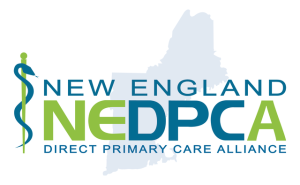Why should I consider Direct Primary Care (DPC)?
In today’s complex healthcare landscape, physicians are often faced with a multitude of challenges, from administrative burdens to limited time with patients. However, a promising solution is gaining momentum – the Direct Primary Care (DPC) model. This innovative approach to healthcare delivery is reshaping the doctor-patient relationship and offering a compelling alternative to the traditional fee-for-service model. In this blog post, we will explore why physicians should consider embracing the Direct Primary Care (DPC) model.
The Direct Primary Care (DPC) model is a compelling option for physicians looking to revolutionize their practice and prioritize the well-being of their patients. By offering enhanced patient care, reducing administrative burdens, and providing financial stability, Direct Primary Care (DPC) can lead to greater job satisfaction and a more rewarding career in medicine. As this model continues to gain popularity, physicians should consider the many benefits it offers to both themselves and their patients. Ultimately, the DPC model represents a prescription for a healthier and more fulfilling future for healthcare providers and the patients they serve.
One of the primary reasons physicians should consider theDirect Primary Care (DPC) model is the enhanced quality of care it offers. InDirect Primary Care (DPC), physicians work with a smaller patient panel, allowing them to spend more time with each patient during appointments. This personalized approach fosters stronger doctor-patient relationships, leading to better patient satisfaction and health outcomes.
The traditional healthcare system often burdens physicians with extensive administrative tasks, from dealing with insurance claims to managing complex billing processes. Direct Primary Care (DPC) eliminates much of this administrative overhead. Physicians can focus on practicing medicine rather than navigating bureaucratic hurdles, leading to increased job satisfaction.
Burnout is a significant concern among healthcare professionals. Direct Primary Care (DPC) can provide physicians with better work-life balance by allowing them to set their own schedules and reduce the number of patients they see daily. This flexibility can lead to a more sustainable and fulfilling career in medicine.
DPC offers physicians a predictable and stable source of income. Patients pay a monthly subscription fee, which ensures a steady revenue stream. This can alleviate the financial uncertainties associated with the fee-for-service model and enable physicians to invest more in patient care and practice improvements.
Direct Primary Care (DPC) encourages a proactive approach to healthcare. With longer appointment times and a smaller patient panel, physicians can place a stronger emphasis on preventive care and wellness. This can lead to early disease detection and better long-term health outcomes for patients.
By eliminating the need for extensive billing and administrative staff, Direct Primary Care (DPC) can significantly reduce a physician’s overhead costs. Smaller practice sizes and simplified operations contribute to cost savings, allowing physicians to invest more in patient care and medical equipment.
Physicians who embrace the Direct Primary Care (DPC) model enjoy greater independence and autonomy in their practice. They have the freedom to make medical decisions based on what is best for their patients rather than being influenced by insurance requirements or corporate interests.
We know you have a bunch of questions and would love to chat with you in more details; however, here are a few of the most common questions.
Most Direct Primary Care (DPC) physician have between 400 to 700 patients in their panel. This is in stark contrast to “fee-for-service” model which typically requires doctors to carry a panel of 2,500+ patients.
The short answer, whatever you like.
Many Direct Primary Care (DPC) physicians find that they can “bring back” many elements of their training that they simply weren’t able to offer as employed physicians.
While there is variability form one State to the other, most Direct Primary Care practices are able to offer wholesale pricing on medications and lab testing.
Despite the significant cost-savings involved with Direct Primary Care memberships, third-party insurance companies do not “cover” or reimburse the cost of membership.
Conference:
- New England Direct Primary Care Alliance
- Direct Primary Care Alliance
- DPC Summit
- Direct Primary Care Masterminds
- DPC Nuts and Bolts
Books:
- The Official Guide to Starting Your Own Direct Primary Care Practice
- Magic, Pixie Dust, and Miracles: A Guide for Direct Primary Care and Employers
Podcasts/News:
